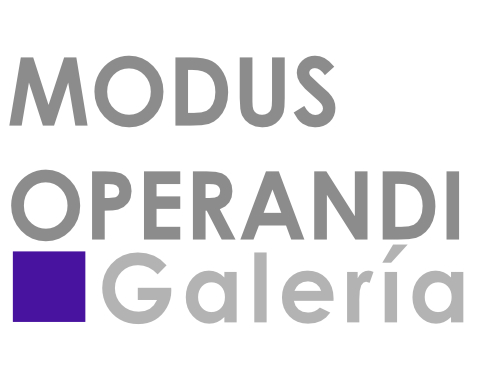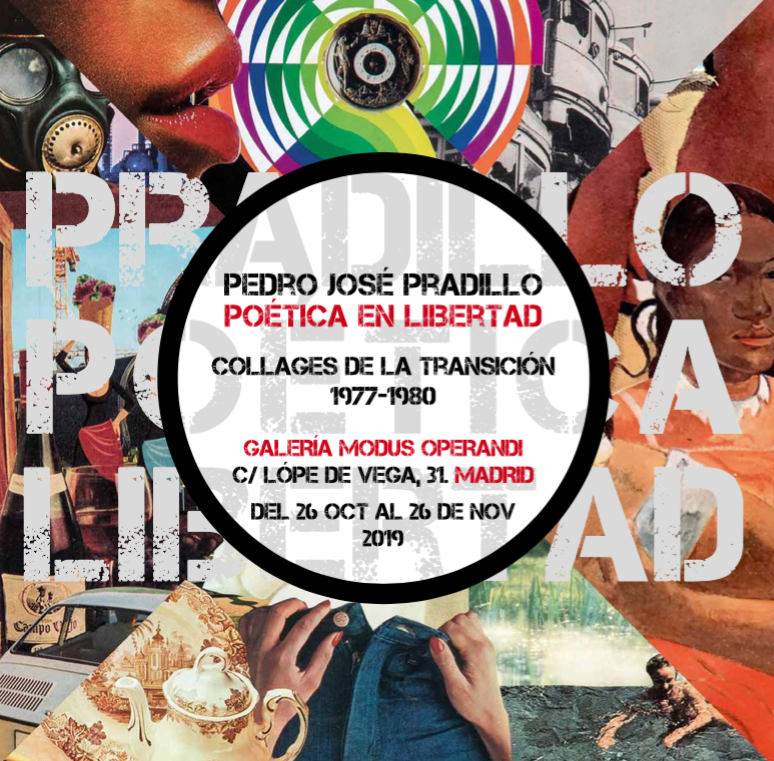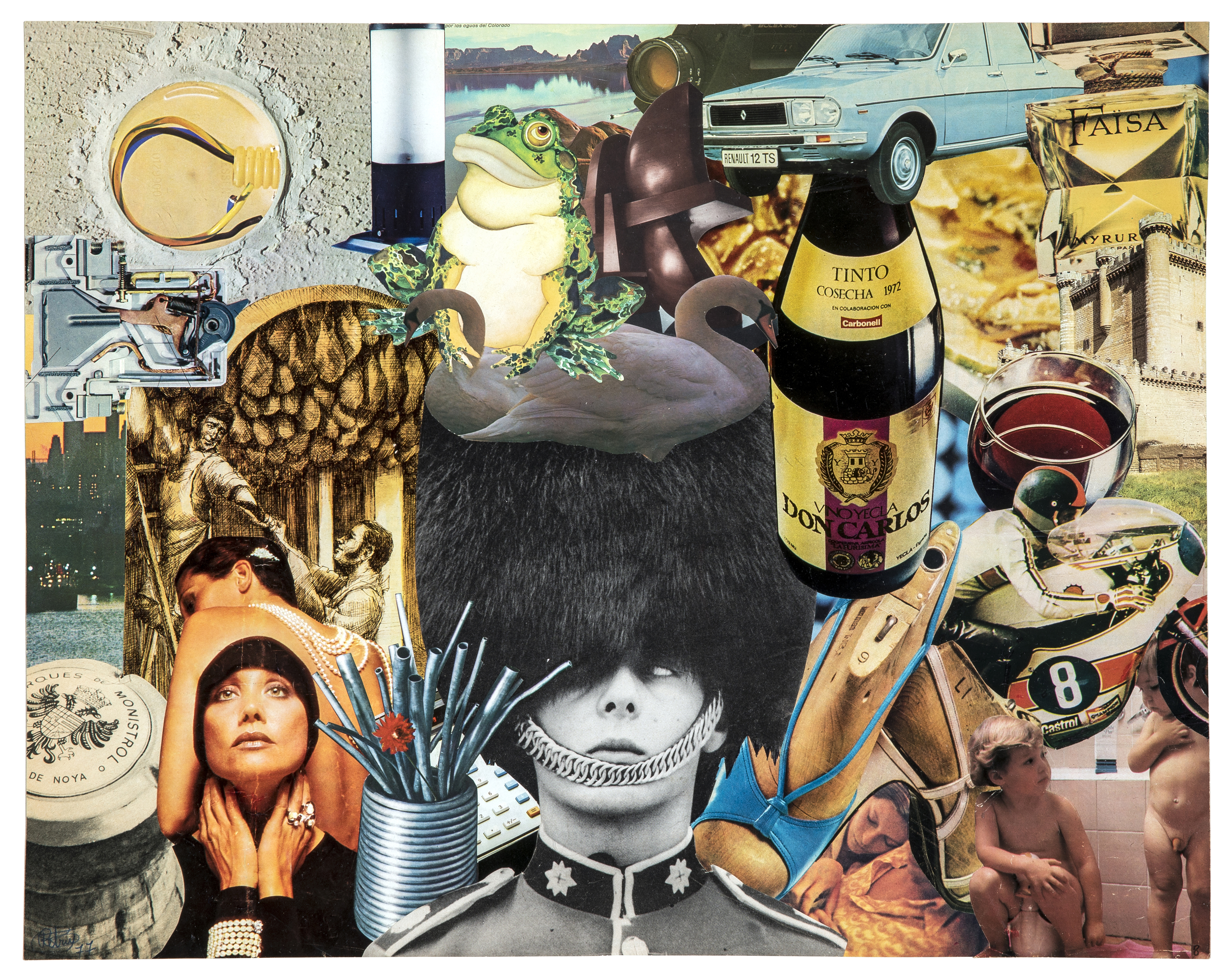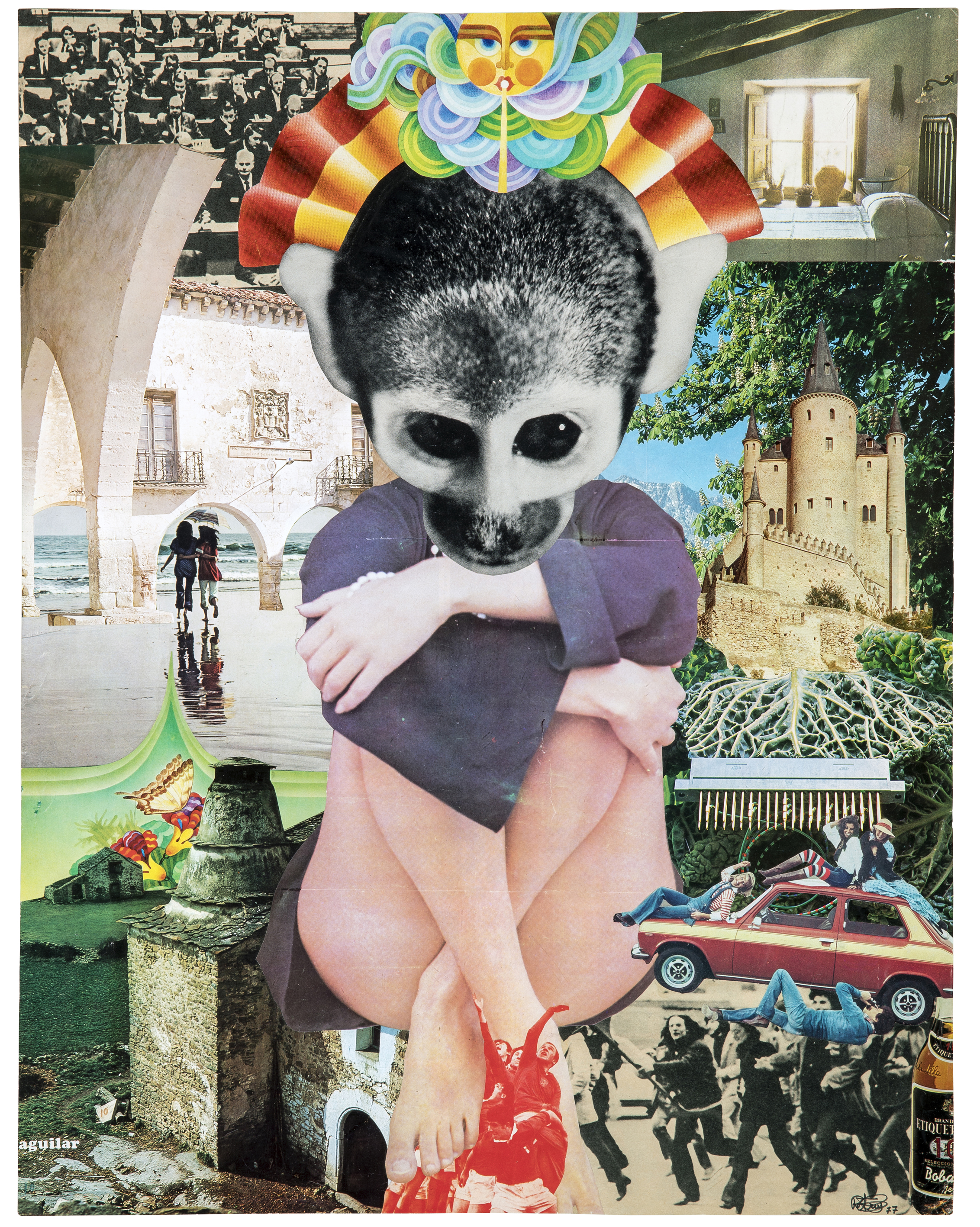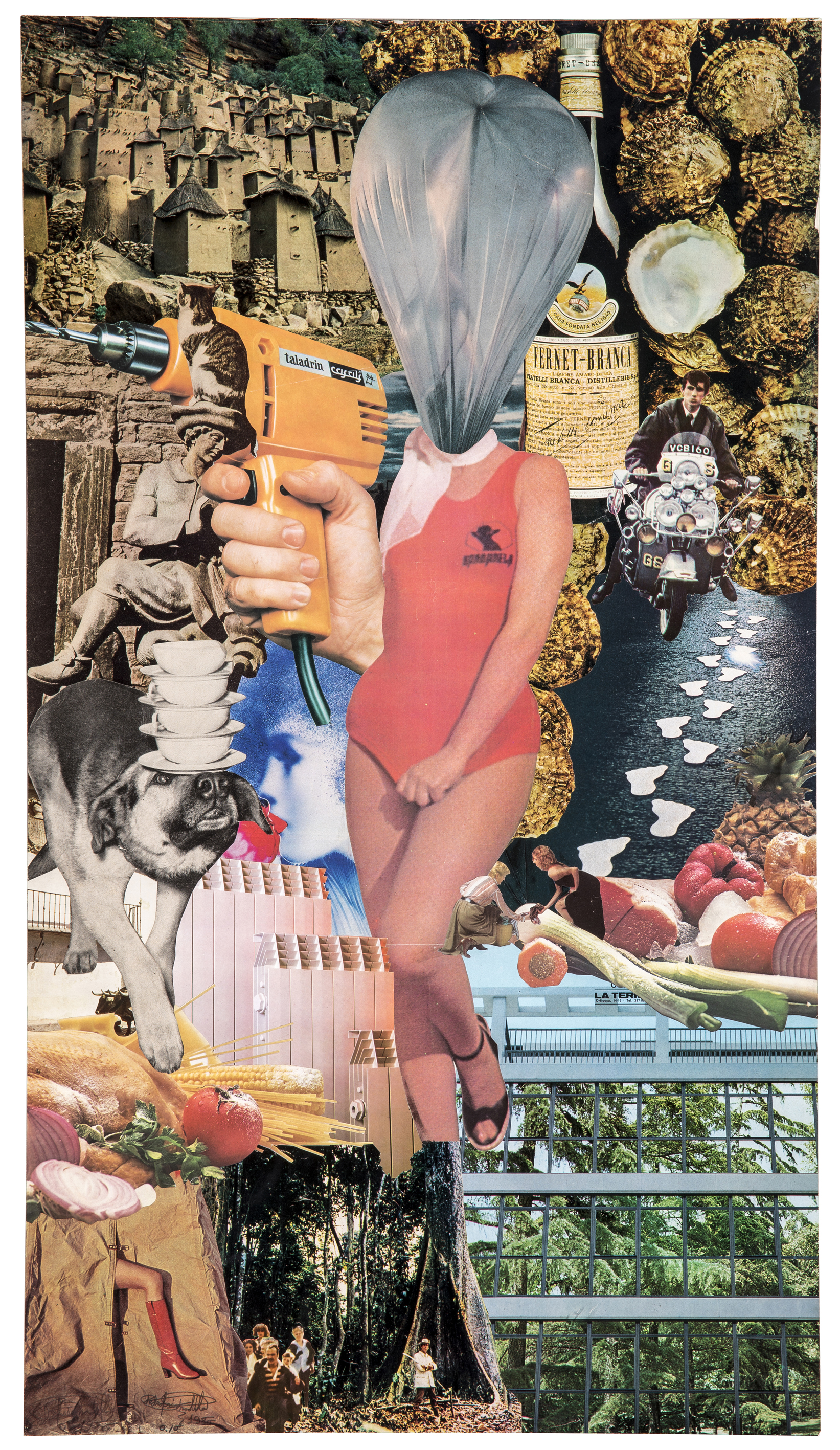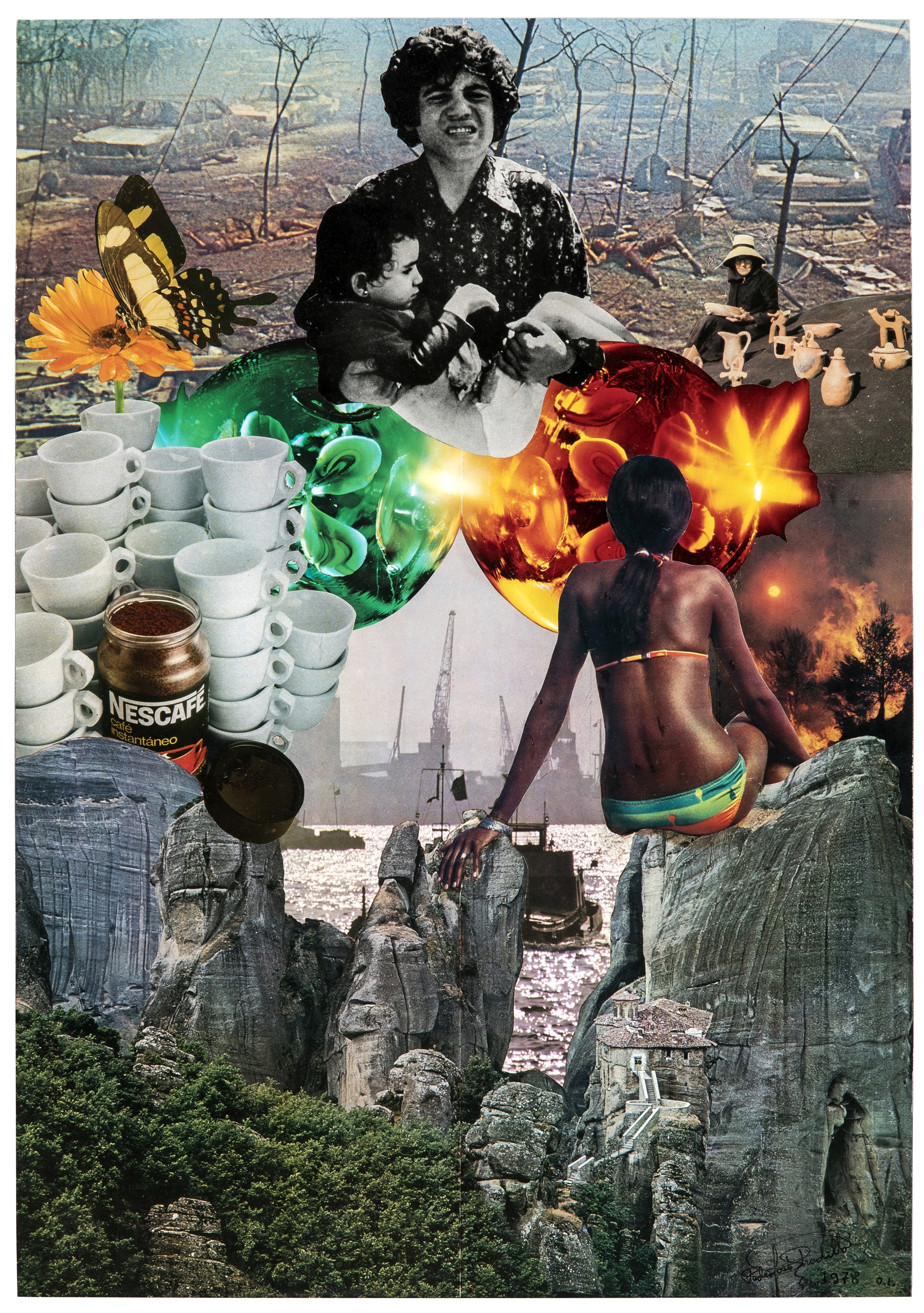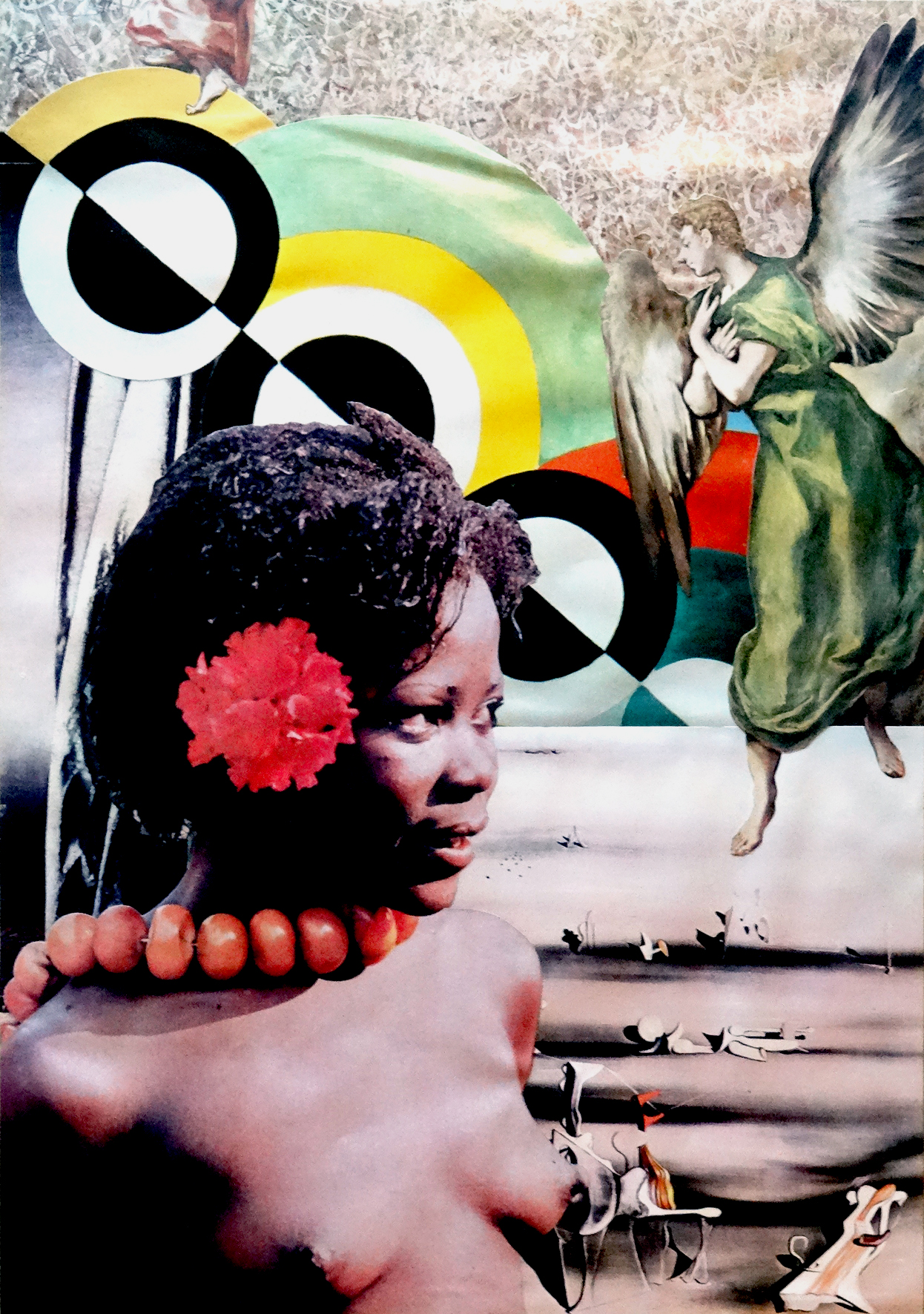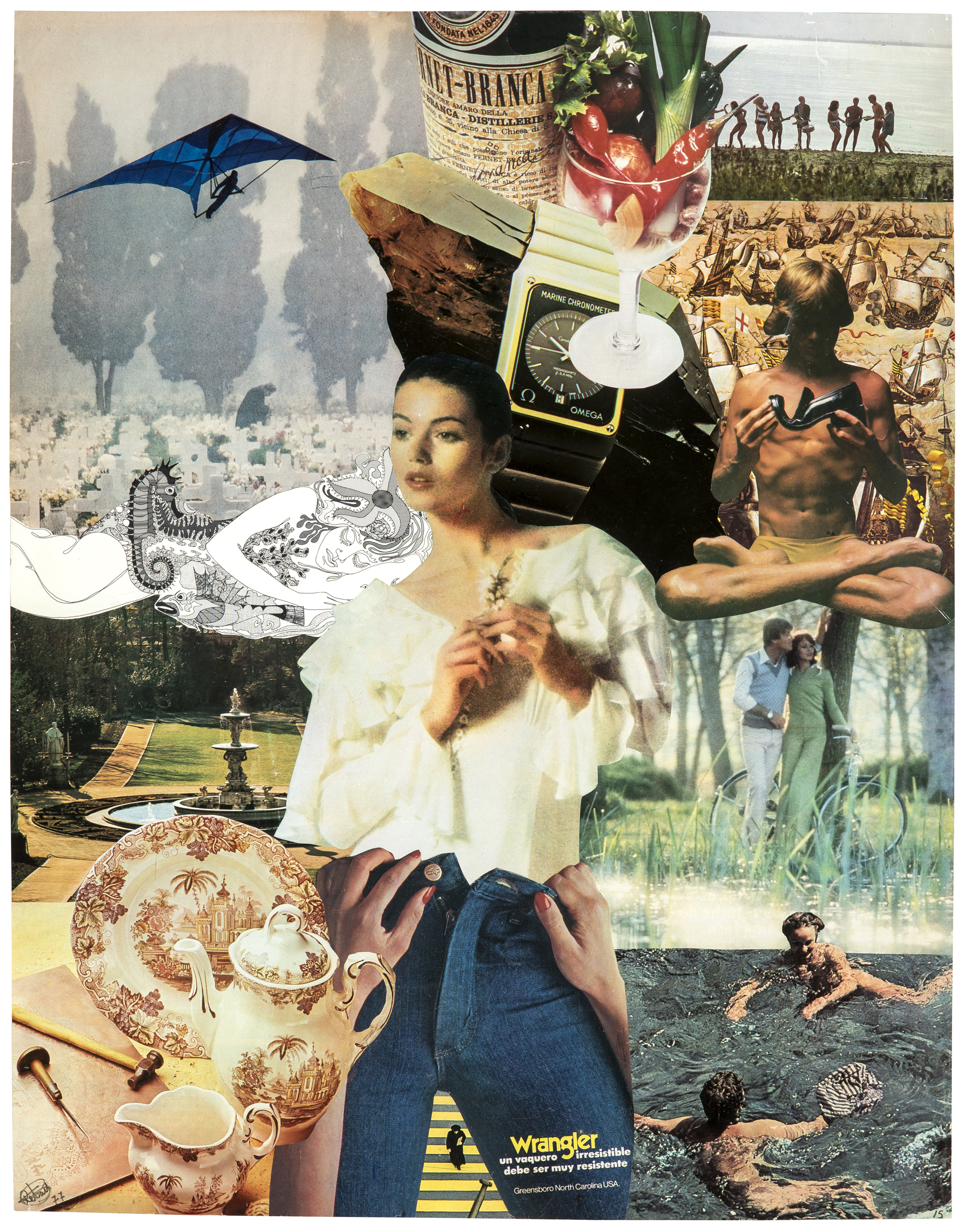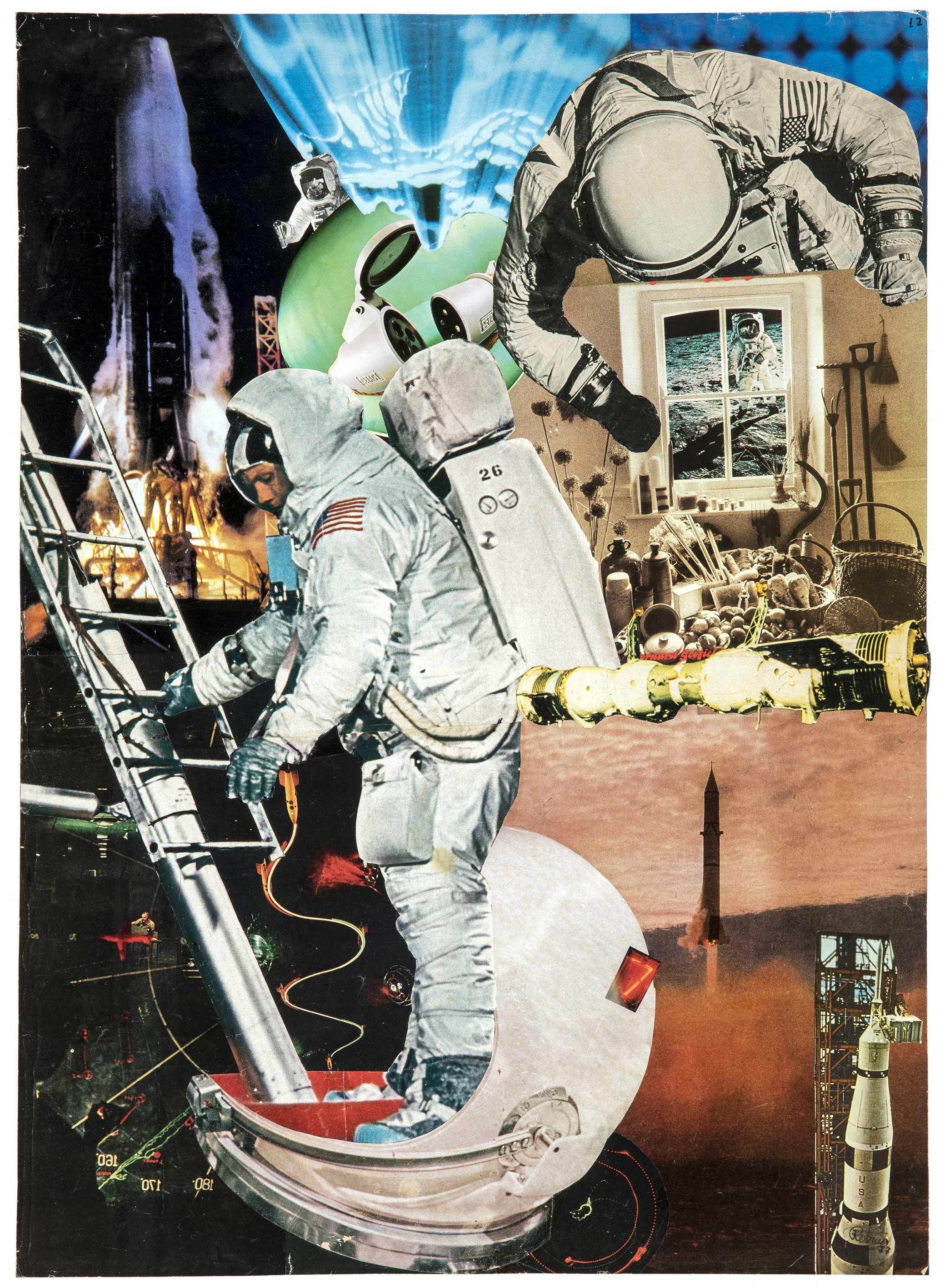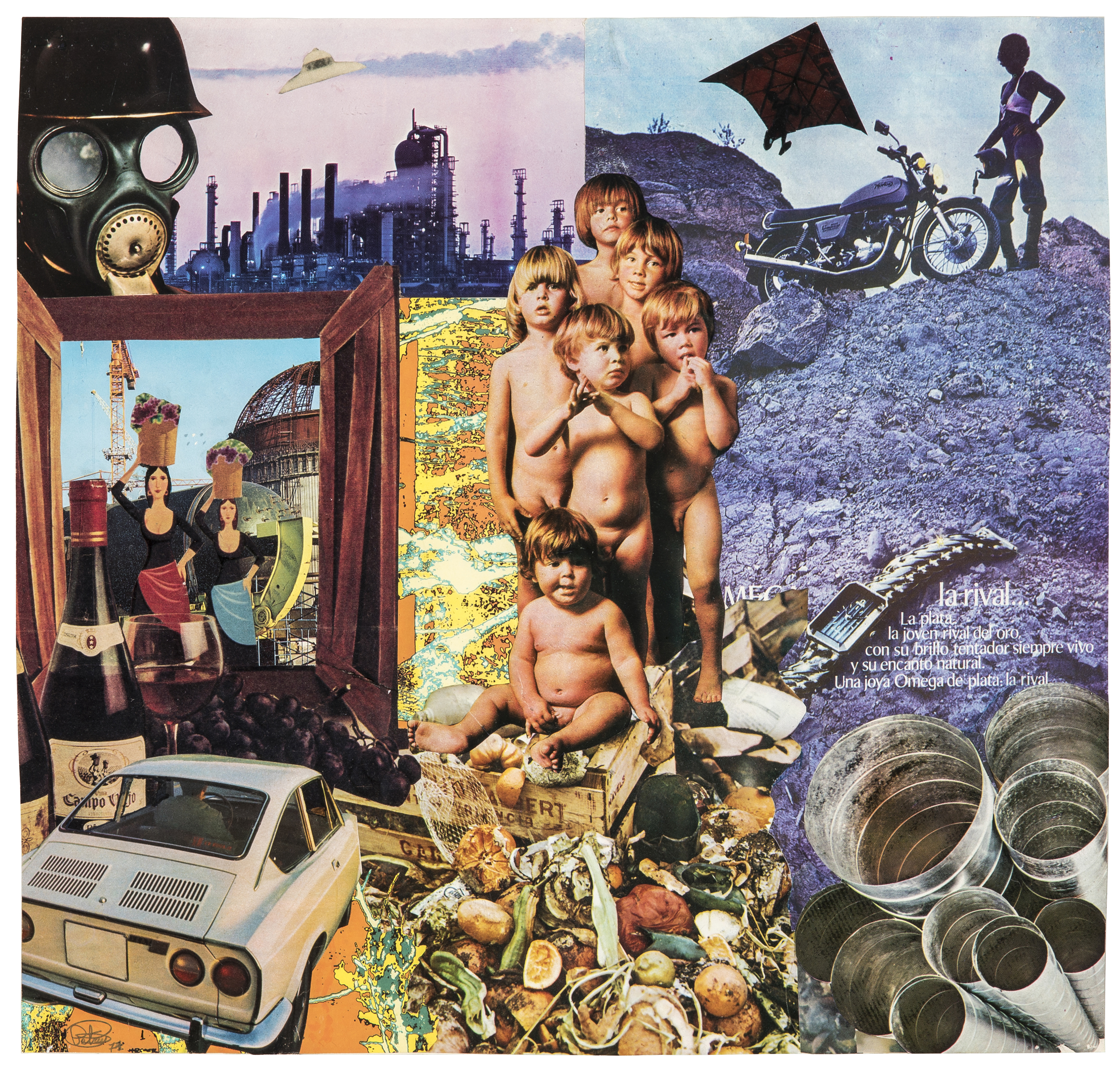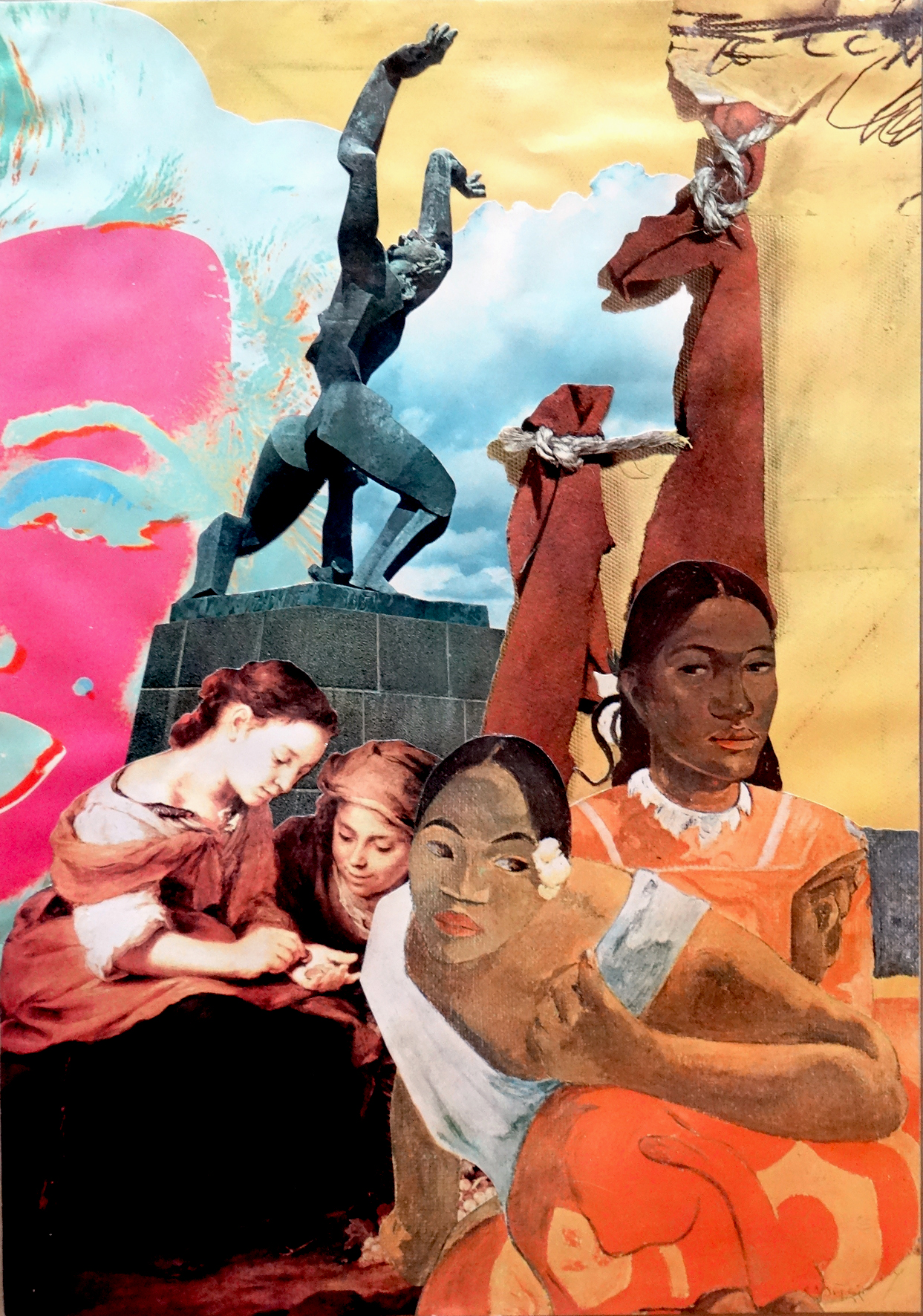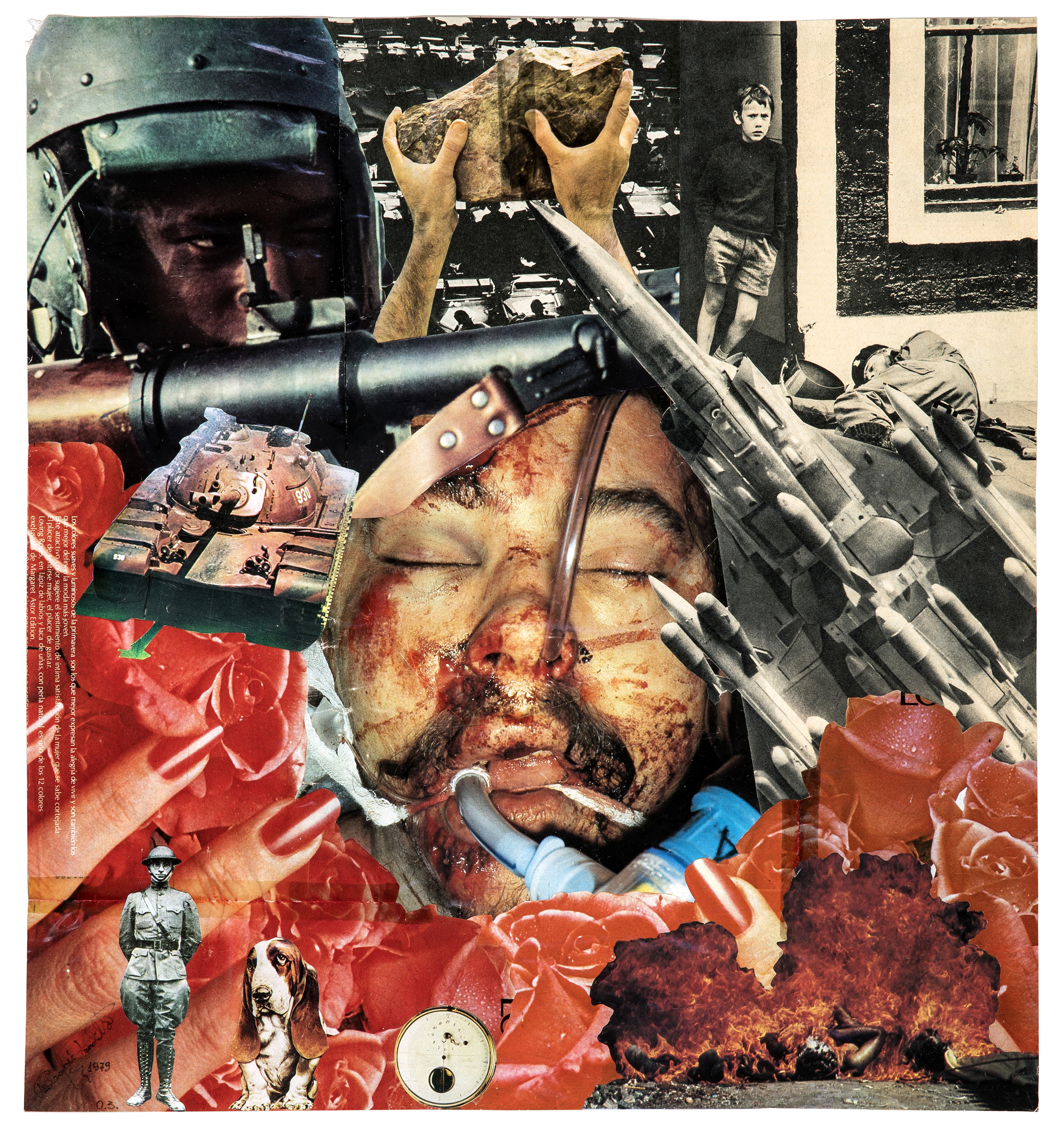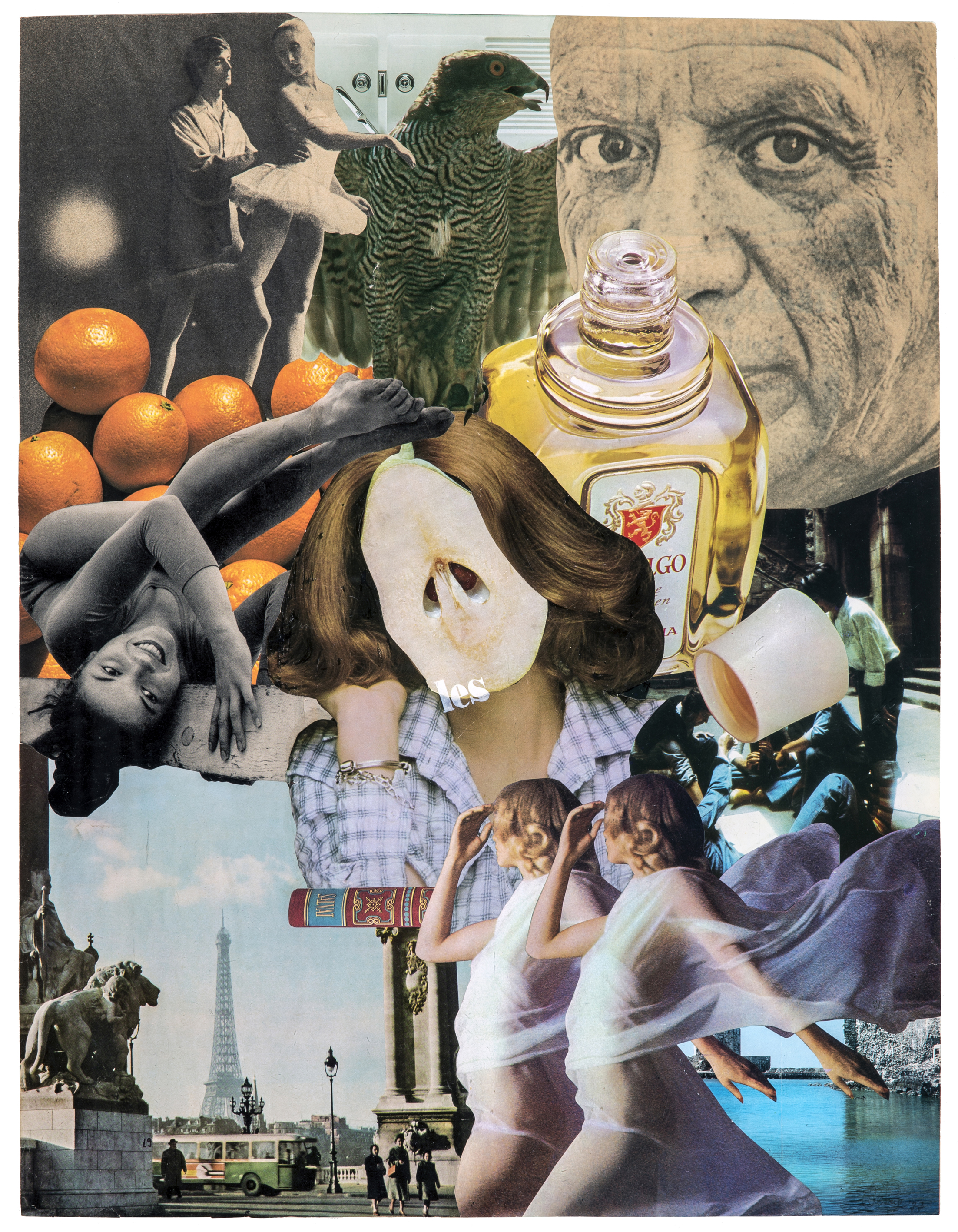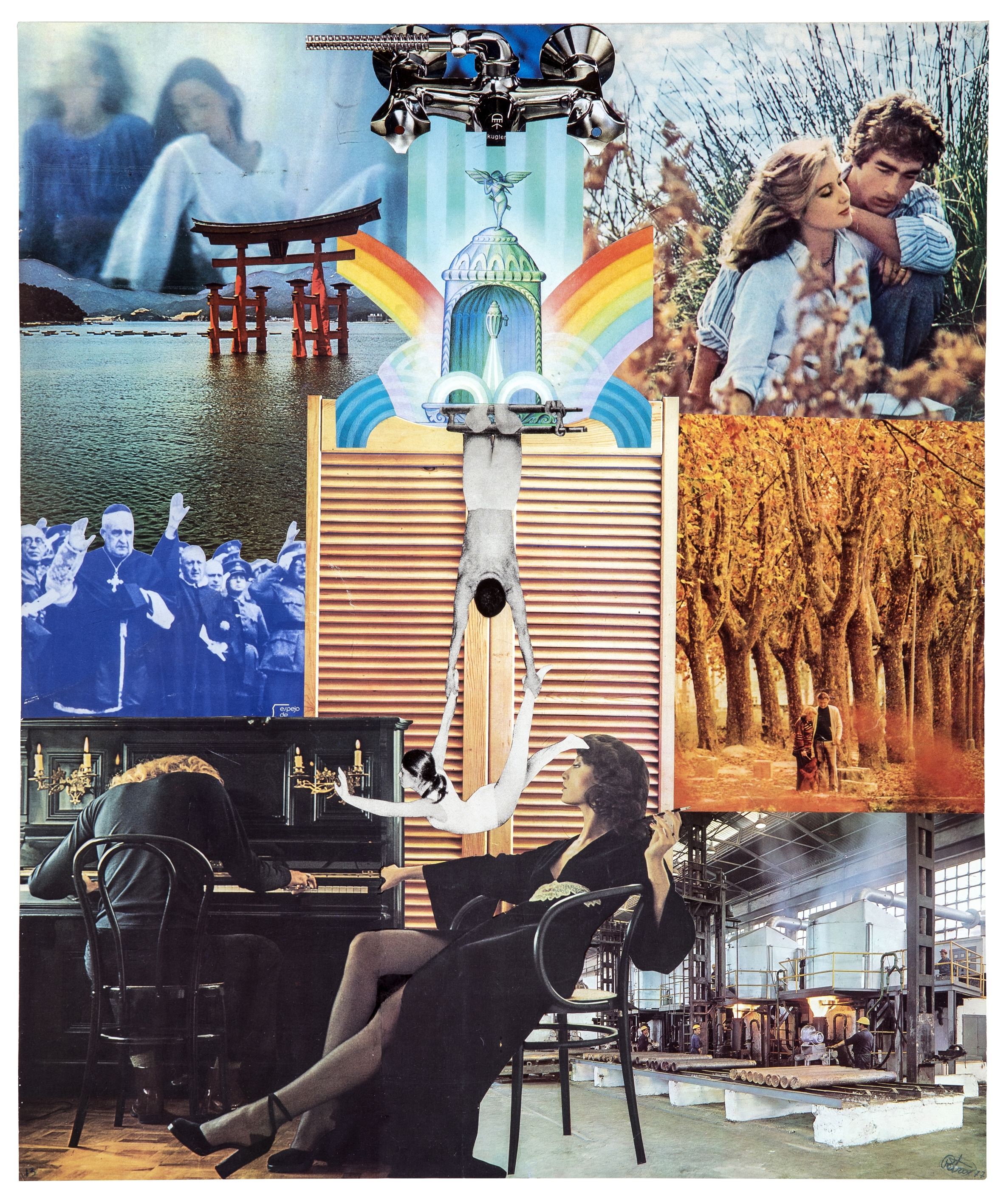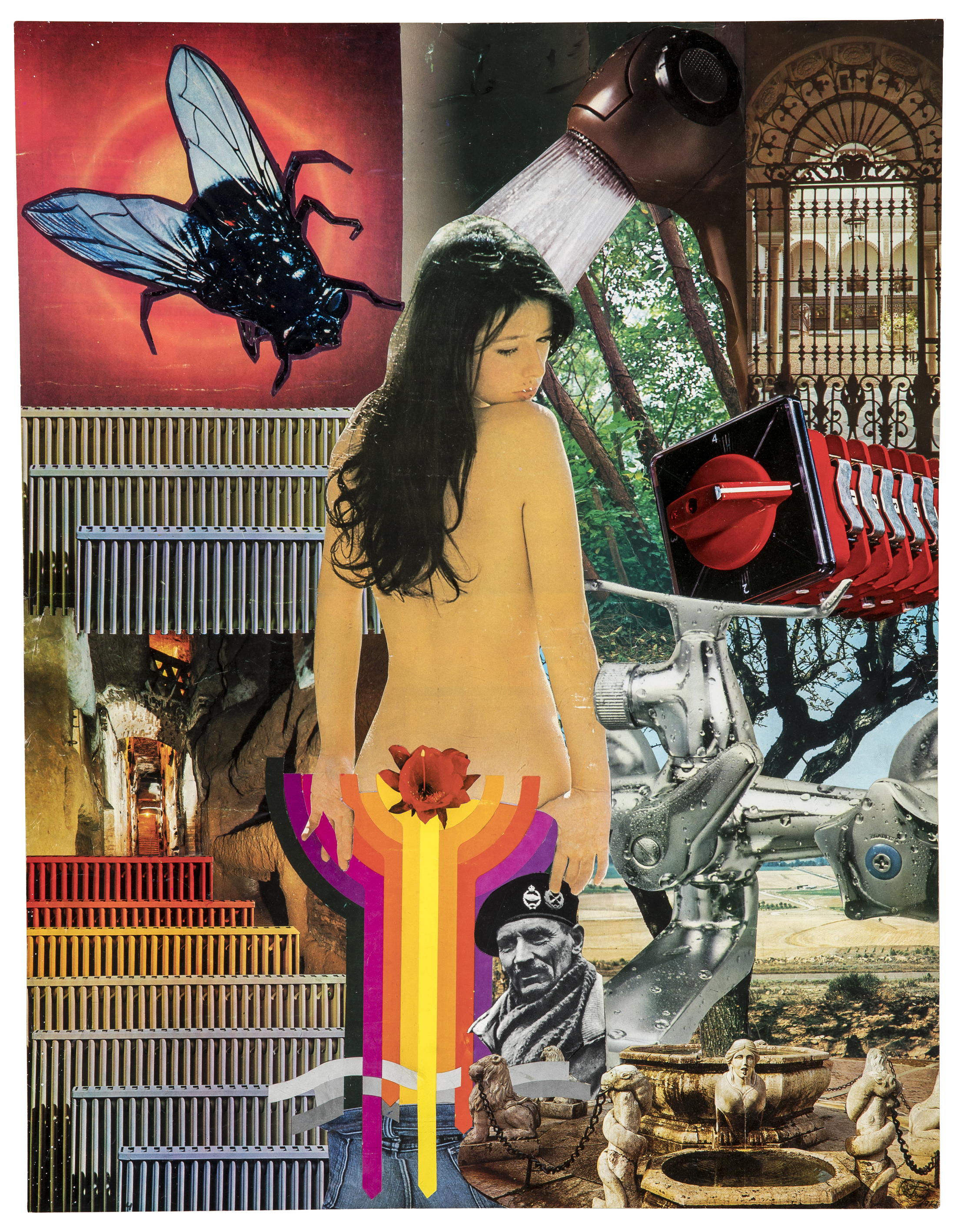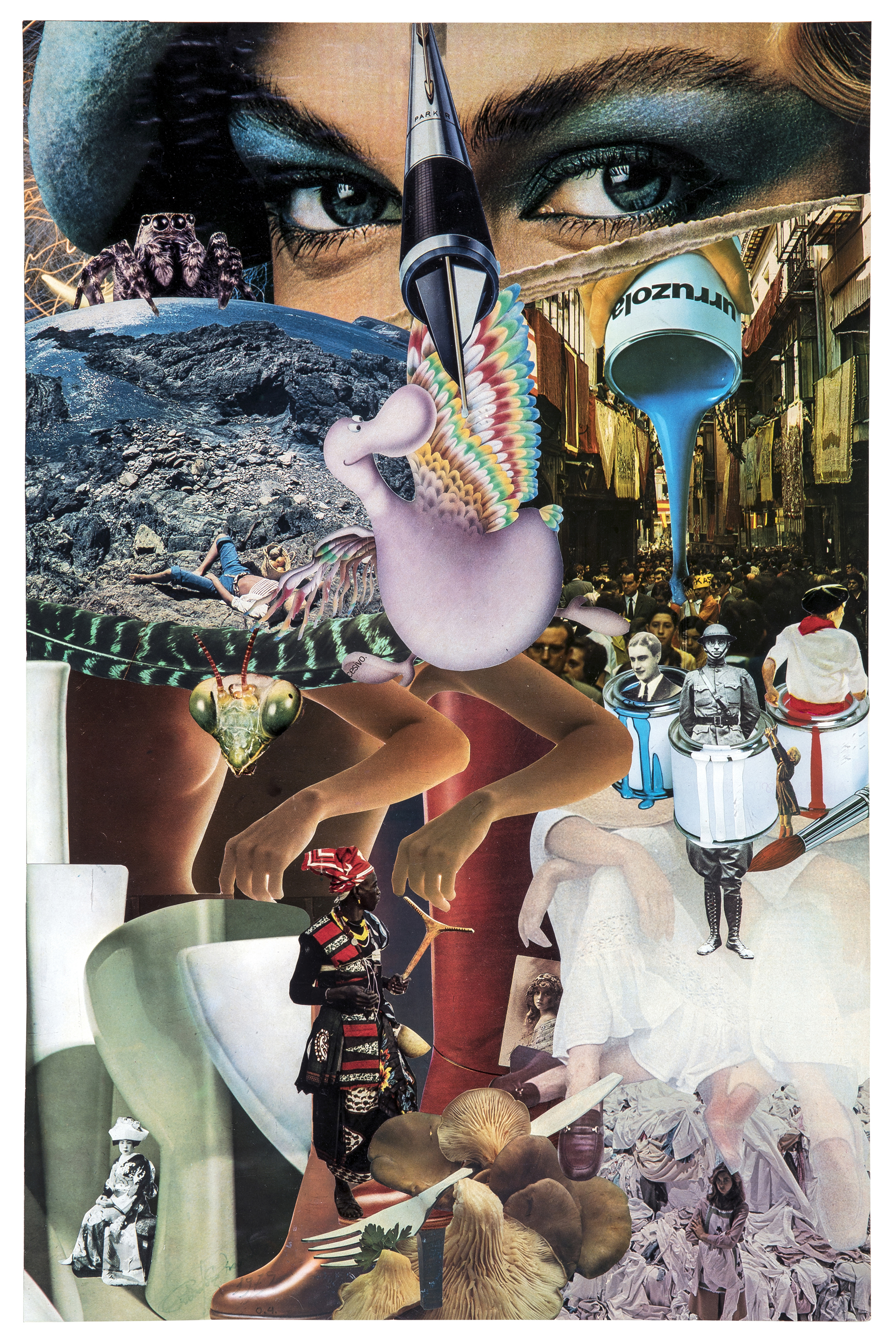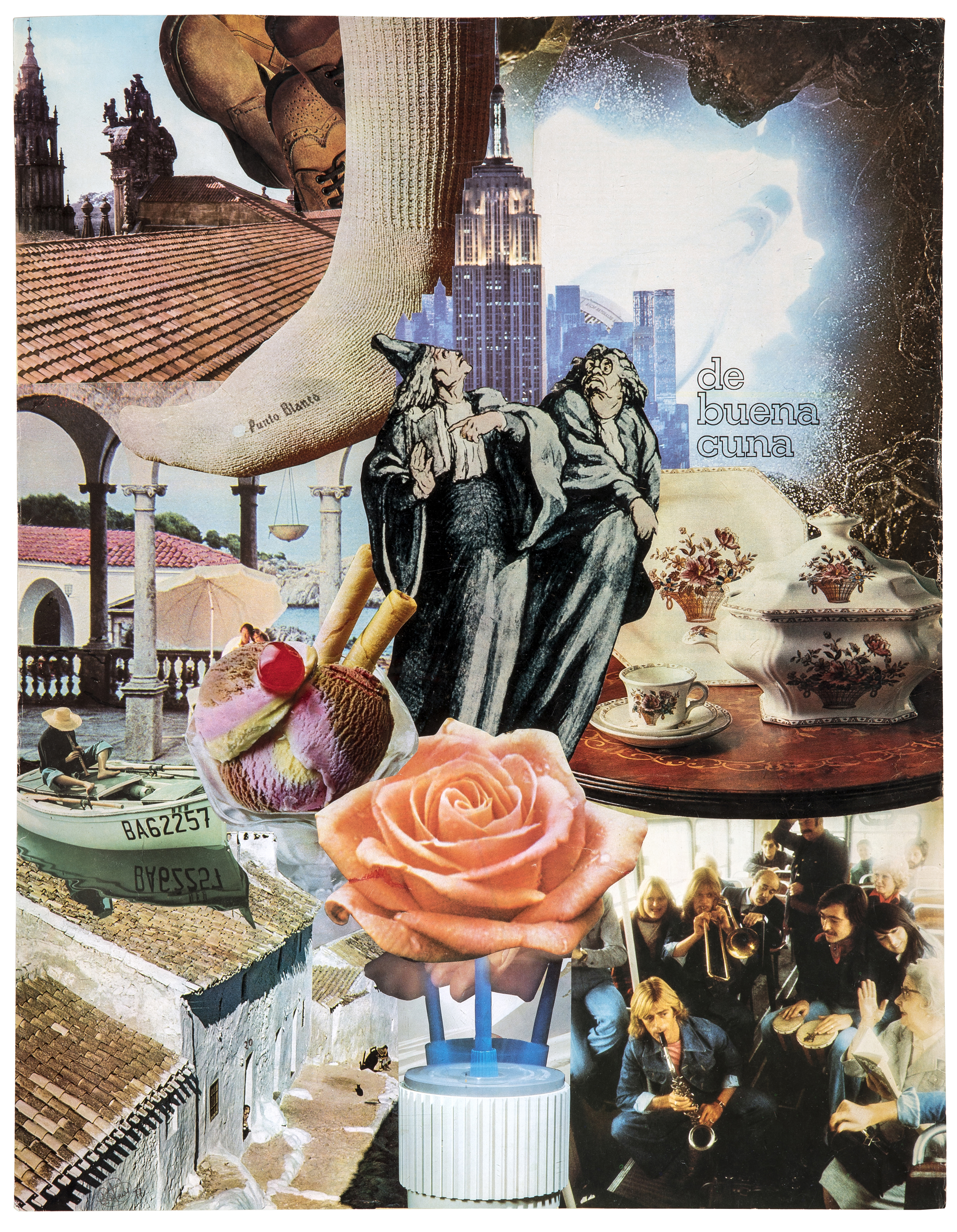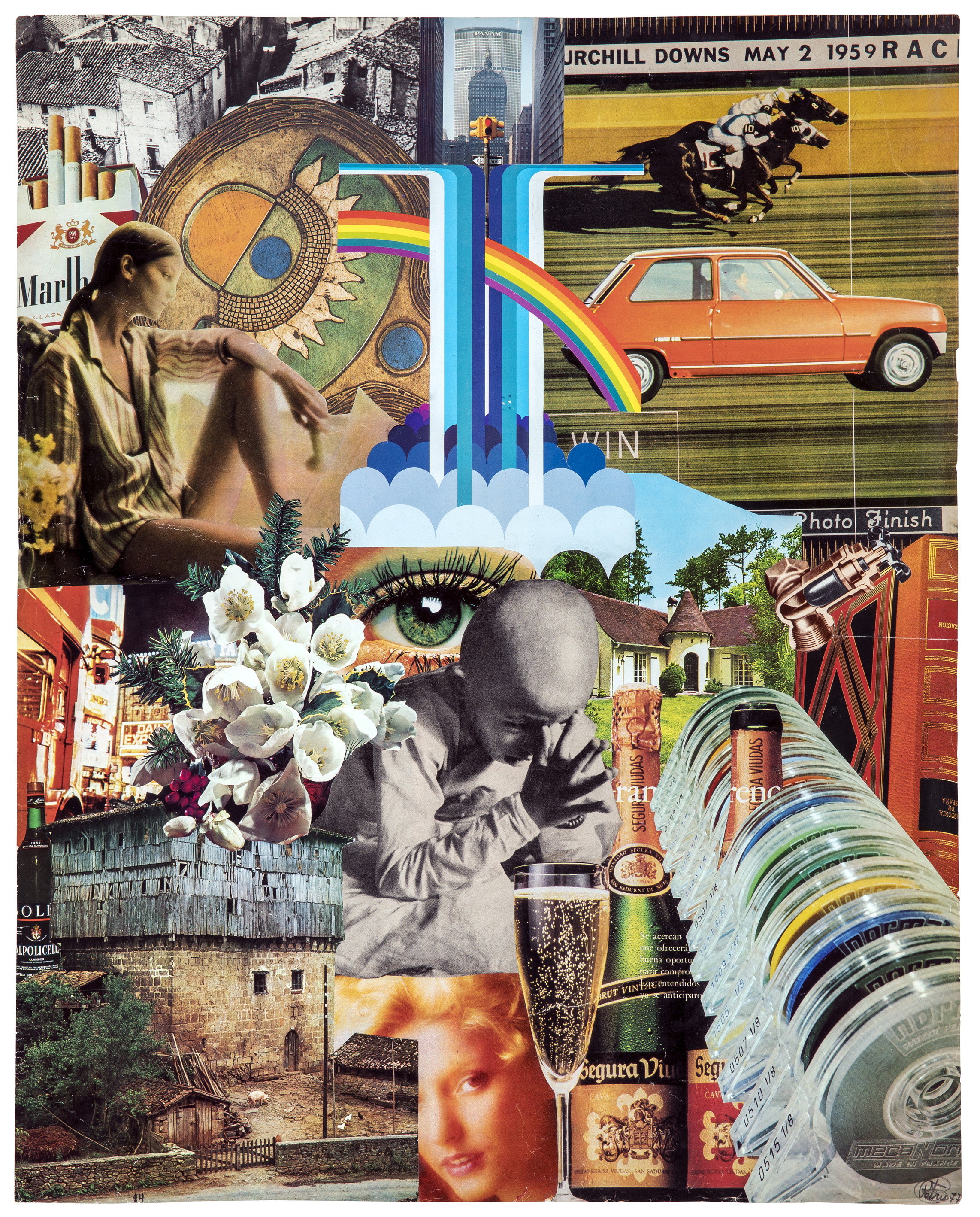"POÉTICA EN LIBERTAD"
Pedro José Pradillo
26/10/19 - 26/11/19
The selection of "Poética en libertad" belongs to the collection of collages of a young Pedro José Pradillo - made between 17 and 18 years old -, which, however, is now exposed for the first time together - they were created more than forty years ago-. These works, with the exception of two pieces, are not presented in the original version, but as photographic positives on dibond.
The title of the exhibition refers us to a teenager Pedro José who has stopped being a child to consider himself a mature and conscious man, who is ready to make his own decisions and give his opinion of the world around him with total freedom, which, in addition It coincides with the national sentiment that arose after the end of Francoism and the liberation that is expected to contribute to the long-awaited democracy. In addition, it is poetic, because Pedro José is adult enough to make judgments, express his feelings and concerns through allegories in the form of advertising photographs, magazine clippings, etc.
We observe in this collection how it perfectly combines metaphor and symbology with an explosion of colors and with a careful aesthetic, as well as shocking. The chromatic richness and the social denunciation keep the spectator enthralled and bewildered, looking for the meaning of these disparate photographs that, at first glance, have nothing to do, but which as a whole convey a harmonic and, above all, conceptual composition.
The lack of national artistic references for this teenage creator allows us to consider this collection as a completely unique milestone. Recall that these collages are beginning to be composed as of 1977, date on which the avant-garde youth of the "Madrid Movement" had not yet broken into the scene. In this way, the only parallel we find with these authors would be the nascent need for a counterculture that, little by little, was emerging inside teenagers during the throes of Francoism.
Specifically, our author looks at American Pop Art and takes as a reference one of its greatest exponents, the expressionist Robert Rauschenberg (1925-2008). The American, often labeled as Neo Dadaísta –current from which Pradillo also drinks–, affirmed that his work was in the open gap between art and life, really questioning whether there is a distinction between art and the objects of the day day. This way of understanding discipline reminds us of Pedro José's way of working, since his creations are made from everyday elements.
Therefore, we can consider that our author is a premature and original artist, prior to what was the post-Francoist creative explosion personified in the “Movida” already cited. Without any doubt, we are faced with a novel and avant-garde work, which, with just the superposition and combination of photographs, manages to move the viewer.
Regarding the subject, Pedro José, as a son of his time, shows what many people began to question at that time of democratic transition. Thus, the most recurrent issues in the selection are: sexual freedom, the end of the nuclear family as the only legitimate type, the emancipation of women, science and the development of the contemporary era, concern for the environment, disasters of wars and terrorism, heritage conservation ... Despite the difference between the issues, in all of them there is an atmosphere of both hope and concern, because we are in a historical and transcendent stage: Spain, without Even the Constitution and without having held general elections, opens up to democracy in a somewhat precarious way, yes, but with all hope. Times are changing and the population with them, without knowing yet very well how.
Text by Gala Pradillo Díaz
/
